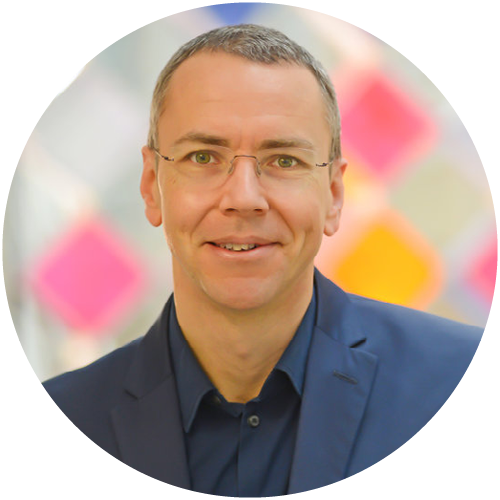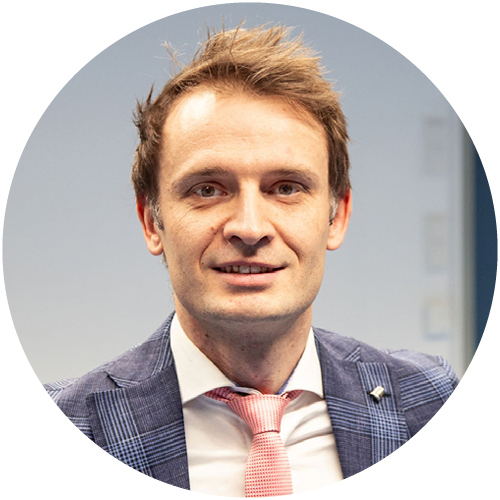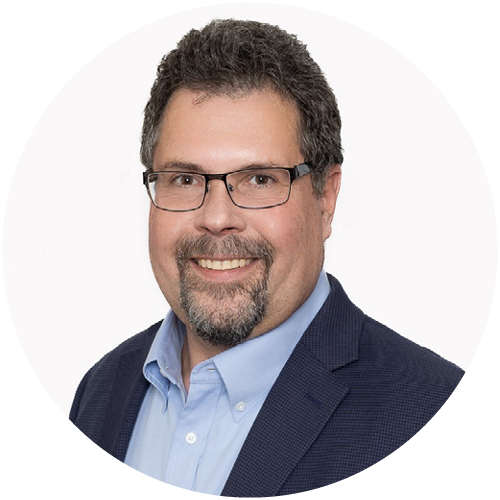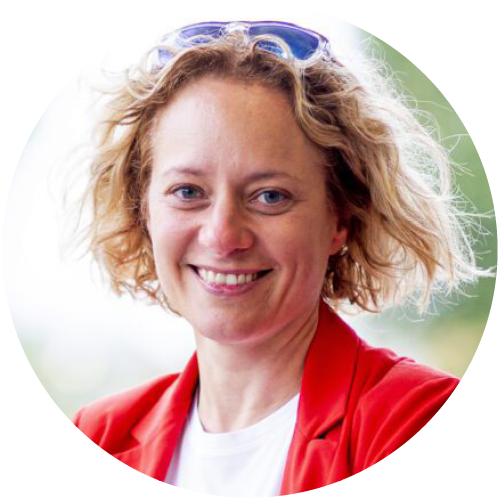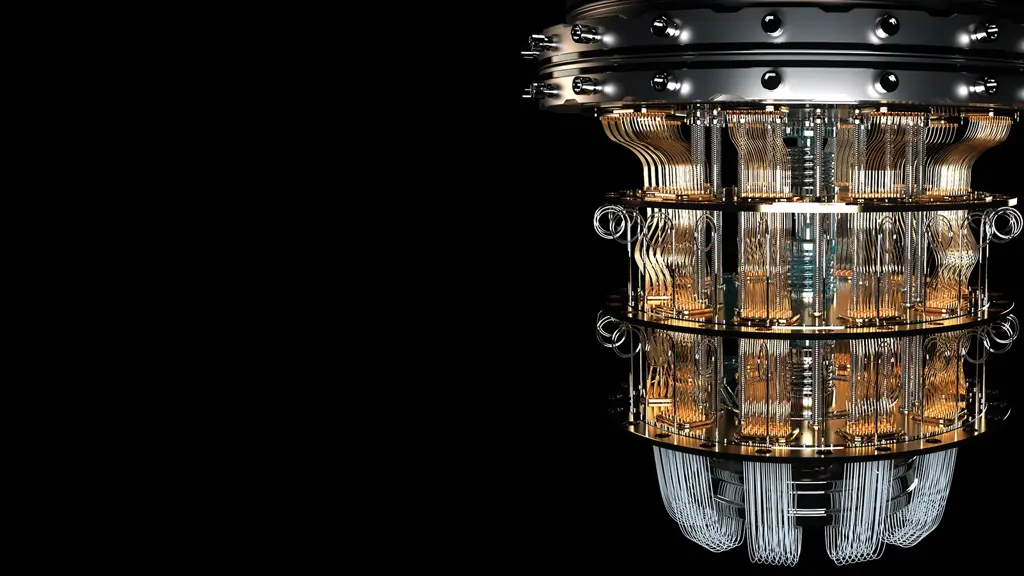
23 - 27 June, 2024
Postillion Hotel & Convention Centre WTC Rotterdam
Rotterdam, Netherlands
Immanuel Bloch
Max Planck Institute of Quantum Optics
New Avenues for Quantum Simulation with Ultracold Atoms, Molecules and Photons
40 years ago, Richard Feynman outlined his vision of a quantum simulator for carrying out complex calculations of physical problems. Today, his dream has become a reality and a highly active field of research across different platforms ranging from ultracold atoms and ions to superconducting qubits and photons. In my talk, I will outline how ultracold atoms in optical lattices started this vibrant and interdisciplinary research field 20 years ago and now allow probing quantum phases in- and out-of-equilibrium with fundamentally new tools and single particle resolution. Novel (hidden) order parameters, entanglement properties, full counting statistics or topological features can now be measured routinely and provide deep new insight into the world of correlated quantum matter. I will introduce the measurement and control techniques in these systems and delineate recent applications regarding quantum simulations of strongly correlated electronic systems, experiments on new dynamical phases of matter, novel quantum optical light-matter interfaces and progress towards realizing ultracold quantum matter of polar molecules.
About the Speaker
Immanuel Bloch is the scientific director at the Max-Planck-Institute of Quantum Optics, Garching, and professor of experimental physics at the Ludwig-Maximilians University (LMU) in Munich. Immanuel Bloch obtained his PhD in physics in 2000 from Ludwig Maximilian University of Munich. From 2003-2009 he was full professor at the University of Mainz. In 2009, he returned to Munich, where his research focused on investigating quantum many-body systems, quantum simulations and quantum information processing. Immanuel Bloch received several prizes for his work, among them the Gottfried-Wilhelm-Leibniz prize of the German Science Foundation (DFG), the German National Merit Medal in 2005, the International Commission of Optics prize, the Senior Prize for Fundamental Aspects of Quantum Electronics and Optics of the European Physical Society, the Körber European Science Prize, the Senior BEC Award, the Harvey Prize of the Technion the Zeiss Research Award and was named Clarivate Citation Laureate in 2022 for his pioneering work on Quantum Simulation.
Christopher Eichler
Friedrich-Alexander-Universität Erlangen-Nürnberg
About the Speaker
In 2022, Christopher Eichler joined the Physics Department at FAU Erlangen as a Full Professor. Previously, he was a tenured Senior Scientist at ETH Zurich, where he led the Quantum Optics and Quantum Computing research in the Qudev Lab. Important achievements include the recent realization of a distance-three surface code, which is considered an important step towards fault-tolerant quantum computing. For his PhD research on the characterization of microwave fields at the single-photon level, he was awarded an ETH medal. During his postdoctoral research as a Dicke fellow at Princeton University, he studied hybrid systems, in which superconducting circuits interact with spins and electrons confined in quantum dots.
Christopher Eichler and his team strive to advance research and education in quantum science and technology. Experimental activities are primarily based on superconducting circuit devices, one of today’s leading platforms for building quantum information processing devices.
John Kitching
National Institute of Standards and Technology
Next-Generation Chip-Scale Atomic Clocks
We describe the development of next-generation chip-scale atomic clocks based on optical transitions and atomic beams. Such clocks may allow improved short- and long-term frequency stability while maintaining small size, low power consumption and a high level of integration.
About the Speaker
Dr. John Kitching is the Leader of the Atomic Devices and Instrumentation Group in The National Institute of Standards and Technology's (NIST) Physical Measurements Laboratory and a NIST Fellow. He received his PhD in Applied Physics from the California Institute of Technology in 1995. He and his group pioneered the development of microfabricated “chip-scale” atomic devices for use as frequency references, magnetometers and other sensors. He is a Fellow of the American Physical Society and the IEEE and has received many awards for his work, including the Department of Commerce Silver and Gold Medals, the 2015 IEEE Sensors Council Technical Achievement Award, the 2016 IEEE-UFFC Rabi Award and the 2014 Rank Prize. He has published over 100 papers in refereed journals, given numerous invited and plenary talks and awarded six patents.
Stephanie Wehner
QuTech
About the Speaker
Stephanie Wehner is an Antoni van Leeuwenhoek Professor in quantum information at Delft University of Technology and the European Quantum Internet Alliance director. She aims to understand the world of small particles – the laws of quantum mechanics – to construct better networks and computers. Quantum bits behave quite differently than classical bits, allowing us to solve tasks that are probably impossible for any classical device. Stephanie has worked extensively in quantum cryptography and communication, and together with the Quantum Internet Alliance, she is working on realizing a large-scale quantum network.
Stephanie is a member of the Royal Dutch Academy of Arts and Sciences, has won a KNAW Ammodo award and is one of the founders of QCRYPT, which has become the largest conference in quantum cryptography. She has written numerous scientific articles in both physics and computer science. From 2010 to 2014, her research group was located at the Centre for Quantum Technologies, National University of Singapore, where she was first Assistant and later Associate Professor. Previously, she was a postdoctoral scholar at the California Institute of Technology in the John Preskill group. In a former life, she worked as a professional hacker in the industry.
